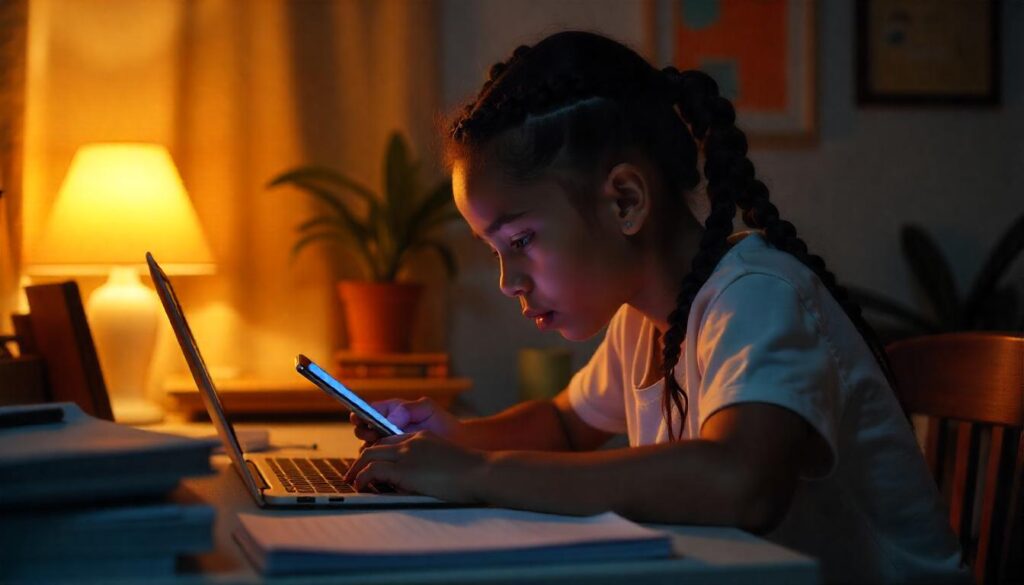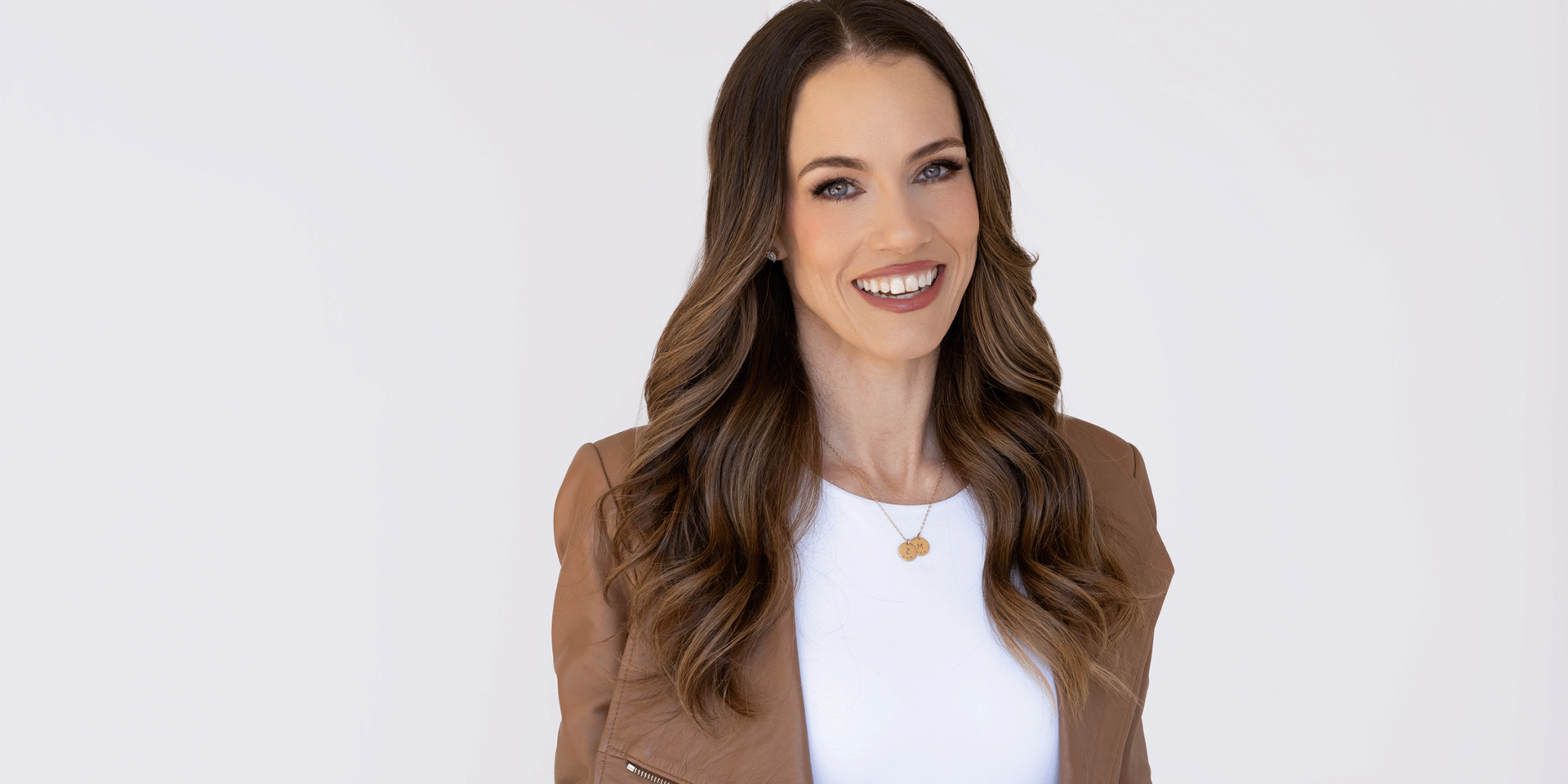Why We Must Passionately Protect Our Children From the Effects of Social Media: Stephanie Duchaine Montgomery

As you may have heard, the Australian government recently introduced a bill to ban children under the age of 16 from using social media. While government involvement is a completely different topic, and I can not speak to the specifics of the bill, I do think it’s important to discuss the potential impact that social media can have on young minds.
As a former Google employee and mom of two who has worked in the tech industry for almost two decades, I am very passionate about protecting our children in the digital age.
I feel strongly that although there are exceptions, such as accounts run by parents for work purposes (an example would be a young professional athlete or public figure), most children should not have access to social media accounts (and in many cases, other apps as well without direct parental supervision or strict parental controls).
I also feel as though open parental communication and education is key here.
Social media is made up of complex algorithms that help determine what the user will be shown - and the algorithms are specifically designed to keep a user on the app as long as possible.
The content that I see on my timeline may be very different from the content that you see, as timelines are made up of posts that the algorithm has deemed will be the most likely to keep an individual user engaged and scrolling.
The more time that you spend on the app, the more money is made – so a “one size fits all” approach is simply not effective from a business standpoint.
The documentary “The Social Dilemma” breaks it down pretty well, and gives examples of what the app does to essentially get a user addicted to it – from tweaking the content that you see to sending you notifications suggesting you come back and check out what’s new.
It also shows specific scenarios in the lives of young people.
Let’s say a curious young person searches for something that most adults would deem inappropriate, and then scrolls through and reads about it. The algorithm now sees that the topic the user searched for was of interest, and will deliver more content of the sort.
Your child may be ingesting information that is not only dangerous, but completely false – being delivered from fake accounts with ulterior motives, people disguising themselves as someone else, and so much more.
On top of a chemical change in the brain when it is being served content of interest, which I will touch on next, younger brains also have a harder time distinguishing fact from fiction, and many times a harder time being able to brush off negative or dangerous content or messages.
Seeing content that we're interested in prompts a physical change in our brain, activating the brain's reward center - keeping the user refreshing and/or scrolling to see what's new.
Because of the dopamine spikes that social media usage can provide, many adults have a hard time putting their phones down sometimes (myself included). Now, consider the impact that this can have on a developing brain.

Not only can this cause shortened attention spans when asked to participate in important activities that cause less of a dopamine spike (including schoolwork, reading, family time and playing with toys), the targeted information provided to the user perpetuates the cycle of wanting more, more, more. This can lead to difficulty concentrating, increased anxiety, sleep issues and more.
There is also growing evidence that mental health issues in teenagers are on the rise, and could very well be correlated with social media use.
This can be due to a plethora of reasons – from unrealistic beauty standards and filters on social media that teens are comparing themselves to, to the ongoing desire for validation through posts and likes – and cyberbullying can be extraordinarily dangerous for vulnerable teens, as well.
Here’s an article from Yale on the subject.
https://www.yalemedicine.org/news/social-media-teen-mental-health-a-parents-guide
The main argument I’ve heard in favor of social media, understandably so, is that social media is a way to connect and socialize and not having access removes the child from a key part of socialization.
While I completely agree that socializing is imperative, there are other ways for young adults to be digitally included without having social media accounts. These can range from having a non-smart phone for calls and texts to having a monitored phone with limited apps.
Privacy and independence are important for teens - safety is even more important.
All it takes is one post or message to cause significant damage to a child or teen’s mental health, or worse. Making sure your child is ready for the world you’re opening them up to is essential.
When deciding if your child is old enough and mature enough for social media, it’s important to consider if they truly understand things like the fact that a post, even if deleted, can potentially live on forever.
And that just because a profile looks legitimate upon first glance, doesn’t mean that it is.
I saw a quote once that said something like:
When you want your child's childhood to end, give them a smartphone.
So my question is this.
If you do hold off on social media for your child, what's the worst that could happen?
Technology is ever changing, and the digital landscape just keeps growing and growing.
It’s our job as parents to keep the communication flowing, and our eyes open to the vast world that our kids will eventually be exposed to.

Stephanie is a former Google employee, and has worked in the technology industry for almost two decades. She’s passionate about helping people understand and utilize technology to make their lives easier and safer.
A Word from our Chief Editor:
We first reached out to Stephanie after receiving her insight for our query on Australia’s social media ban for children under 16 years.
Even in her brief response, she had so many important points to talk about that it was clear we had to offer her a dedicated post to reveal more.
Thankfully, she very humbly agreed to contribute.
As is evident, all that she discusses in her post is indeed vital to today’s debate on not just Australia’s move but the effects of social media on children in general.
Every point is valid, and as representatives of the tech community, it is crucial that we hold ourselves responsible and take this conversation forward.
We encourage you to reach out to Stephanie and learn more. You can get in touch with her on LinkedIn or X.
You can also get in touch with us if you wish to contribute to this critical conversation around the use of social media among children.











